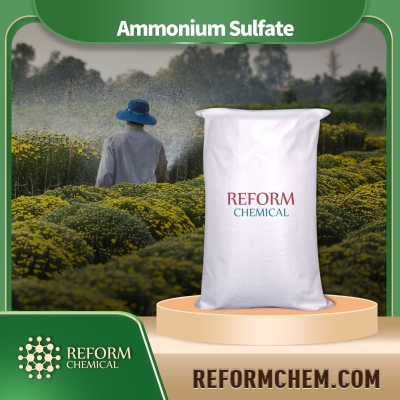-
Categories
-
Pharmaceutical Intermediates
-
Active Pharmaceutical Ingredients
-
Food Additives
- Industrial Coatings
- Agrochemicals
- Dyes and Pigments
- Surfactant
- Flavors and Fragrances
- Chemical Reagents
- Catalyst and Auxiliary
- Natural Products
- Inorganic Chemistry
-
Organic Chemistry
-
Biochemical Engineering
- Analytical Chemistry
-
Cosmetic Ingredient
- Water Treatment Chemical
-
Pharmaceutical Intermediates
Promotion
ECHEMI Mall
Wholesale
Weekly Price
Exhibition
News
-
Trade Service
Since the reform and opening up, China has vigorously developed pesticides in order to solve the food shortage problem.
The current food problem has been greatly improved, but a new problem has emerged, that is, the use of pesticides in most countries in the world has been declining.
Under the circumstances, China has increased the use of pesticides at an alarming rate
.
Since 2008, food safety has been one of the lingering issues for the public
.
Food contamination, counterfeiting, additives and other issues continue to challenge the public's nerves, and even various agricultural residue incidents are frequently reported in the newspapers, and "agricultural residues" are the top priority of our food safety issues
.
The use of pesticides has changed.
Although pesticides are far from our lives, pesticides have continuously penetrated into all aspects of our lives through other forms.
Pesticides were originally used as a preventive treatment for various diseases and insect pests and to increase crop yields
.
In the past 50 years, the nutrient content of vegetables has dropped dramatically.
The pesticides are divided into pesticides, fungicides, rodenticides, etc.
Each year, 3.
5 million tons of pesticides are used on crops in the world, and China alone accounts for half
.
According to data from the National Bureau of Statistics: In 2014, the use of pesticides in China was 1.
8069 million tons
.
China has used pesticides on a large scale for nearly 20 years, and the proportion of pesticide residues in various agricultural products exceeding the standard remains high
.
Since the 1990s, the use of pesticides in my country has been on the rise.
In 1996, the use of pesticides was 1.
408 million tons.
By 2014, it was nearly 2 million tons, "almost doubled", compared with the continuous increase in the use of pesticides in China.
, The use of pesticides in other countries is basically declining year by year
.
In the past 20 years, the use of pesticides in various countries has decreased by 44% in the United Kingdom, 38% in France, 32% in Japan, and 26% in Italy.
If you say that the above data are for developed countries, let’s take a look.
In developing countries, in Vietnam, which is also heavily agricultural, the use of pesticides in Vietnam has decreased by 24% in the past 20 years.
The annual increase in pesticide use in China is partly due to the production of pesticides in China.
"Developed", "Currently there are more than 2,000 pesticide manufacturers in China, and the output of pesticides in 2015 reached 3.
74 million tons.
" Not only has its own pesticide demand "self-sufficiency", it has also become "the world's largest pesticide manufacturer and exporter
.
" Pesticide utilization rate is low and trapped in a vicious cycle.
Pesticides, as a means of chemical prevention and control, are unsustainable.
Long-term use of pesticides will cause a vicious circle of drug resistance, frequent pests and diseases, and deterioration of the ecological environment, leading to an increase in the use of pesticides
.
According to data from the Ministry of Agriculture in 2015, "The average utilization rate of pesticides in China is 36.
6%.
" Excessive use of pesticides not only threatens food safety, but also pollutes the soil and water environment through runoff and leakage drift, affecting the ecological and environmental safety of farmland.
"Pesticides pollute the soil area of farmland.
It has exceeded 100 million mu
.
" At the same time, these unused pesticides will affect the health of other animals and plants and even the public through various forms
.
The current food problem has been greatly improved, but a new problem has emerged, that is, the use of pesticides in most countries in the world has been declining.
Under the circumstances, China has increased the use of pesticides at an alarming rate
.
Since 2008, food safety has been one of the lingering issues for the public
.
Food contamination, counterfeiting, additives and other issues continue to challenge the public's nerves, and even various agricultural residue incidents are frequently reported in the newspapers, and "agricultural residues" are the top priority of our food safety issues
.
The use of pesticides has changed.
Although pesticides are far from our lives, pesticides have continuously penetrated into all aspects of our lives through other forms.
Pesticides were originally used as a preventive treatment for various diseases and insect pests and to increase crop yields
.
In the past 50 years, the nutrient content of vegetables has dropped dramatically.
The pesticides are divided into pesticides, fungicides, rodenticides, etc.
Each year, 3.
5 million tons of pesticides are used on crops in the world, and China alone accounts for half
.
According to data from the National Bureau of Statistics: In 2014, the use of pesticides in China was 1.
8069 million tons
.
China has used pesticides on a large scale for nearly 20 years, and the proportion of pesticide residues in various agricultural products exceeding the standard remains high
.
Since the 1990s, the use of pesticides in my country has been on the rise.
In 1996, the use of pesticides was 1.
408 million tons.
By 2014, it was nearly 2 million tons, "almost doubled", compared with the continuous increase in the use of pesticides in China.
, The use of pesticides in other countries is basically declining year by year
.
In the past 20 years, the use of pesticides in various countries has decreased by 44% in the United Kingdom, 38% in France, 32% in Japan, and 26% in Italy.
If you say that the above data are for developed countries, let’s take a look.
In developing countries, in Vietnam, which is also heavily agricultural, the use of pesticides in Vietnam has decreased by 24% in the past 20 years.
The annual increase in pesticide use in China is partly due to the production of pesticides in China.
"Developed", "Currently there are more than 2,000 pesticide manufacturers in China, and the output of pesticides in 2015 reached 3.
74 million tons.
" Not only has its own pesticide demand "self-sufficiency", it has also become "the world's largest pesticide manufacturer and exporter
.
" Pesticide utilization rate is low and trapped in a vicious cycle.
Pesticides, as a means of chemical prevention and control, are unsustainable.
Long-term use of pesticides will cause a vicious circle of drug resistance, frequent pests and diseases, and deterioration of the ecological environment, leading to an increase in the use of pesticides
.
According to data from the Ministry of Agriculture in 2015, "The average utilization rate of pesticides in China is 36.
6%.
" Excessive use of pesticides not only threatens food safety, but also pollutes the soil and water environment through runoff and leakage drift, affecting the ecological and environmental safety of farmland.
"Pesticides pollute the soil area of farmland.
It has exceeded 100 million mu
.
" At the same time, these unused pesticides will affect the health of other animals and plants and even the public through various forms
.






